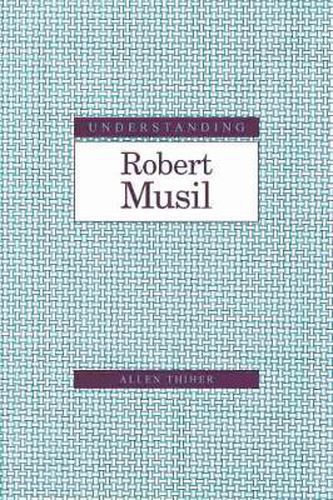Readings Newsletter
Become a Readings Member to make your shopping experience even easier.
Sign in or sign up for free!
You’re not far away from qualifying for FREE standard shipping within Australia
You’ve qualified for FREE standard shipping within Australia
The cart is loading…






This book contains deft analysis of the fiction, theater, and essays of the author of
The Man without Qualities . In this critical introduction to the major works of Austrian modernist writer Robert Musil (1880-1942), Allen Thiher maps Musil’s development as a writer, illustrating how his work evolved in response to catastrophic historical events such as World War I, the collapse of the Austro-Hungarian Empire, and Hitler’s seizure of power. Following his service in World War I, Musil began to view writing as his vocation, and, during this early period in his literary career, he produced short fiction, plays, and some of the most interesting essays on politics, ethics, and literature to be published during the Weimar era. In exploring these writings as well as
The Man without Qualities , a work left unfinished upon Musil’s death in exile during World War II, Thiher’s study plumbs the depths of Musil’s ambition and accomplishments and presents a concise interpretation of the lasting significance of the writer’s interrogations of the foundations of modern European culture.
$9.00 standard shipping within Australia
FREE standard shipping within Australia for orders over $100.00
Express & International shipping calculated at checkout
This book contains deft analysis of the fiction, theater, and essays of the author of
The Man without Qualities . In this critical introduction to the major works of Austrian modernist writer Robert Musil (1880-1942), Allen Thiher maps Musil’s development as a writer, illustrating how his work evolved in response to catastrophic historical events such as World War I, the collapse of the Austro-Hungarian Empire, and Hitler’s seizure of power. Following his service in World War I, Musil began to view writing as his vocation, and, during this early period in his literary career, he produced short fiction, plays, and some of the most interesting essays on politics, ethics, and literature to be published during the Weimar era. In exploring these writings as well as
The Man without Qualities , a work left unfinished upon Musil’s death in exile during World War II, Thiher’s study plumbs the depths of Musil’s ambition and accomplishments and presents a concise interpretation of the lasting significance of the writer’s interrogations of the foundations of modern European culture.